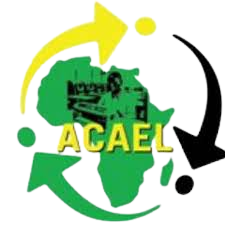COUNCIL FOR ACCREDITATION OF EXPERIENTIAL LEARNING
 CAEL
CAEL
CAEL
Rationale
In every man’s mind, lies the dream to be independent and be able to provide a descent livelihood for those that depend on him… a dream that has caused men to dig deeper into volumes of books to gain knowledge and insight needed for survival…a dream, that if realized will change the course and face of Africa……..Unfortunately to some, this dream will be just that: a dream.
Mr. Julius Owele is a married, hardworking man with four children; in pursuit of his family’s needs, Owele works for eight hours daily at an industrial plant located at the outskirts of Nairobi as a clerk. It is interesting to note that despite working with pledged allegiance for nine years in the plant, Mr. Owele has never risen past the clerical echelon. Year in year out other workers employed after him get promotions while he still waits for his recognition.
According to his employer, Owele’s plight lies in his level of education, low grades and thus lack of “proper certificates”. This hardworking man is not oblivious of this fact; he knows he has to go back to school if he is to gain more insight in regards to his career and consequently get a promotion. However, there are many impediments to his wishes.
His many attempts to join universities in Kenya are met with “your grades are low” and therefore we cannot admit you. He has tried but only managed to get a university in USA which required that he travels to US. This presented another tough problem since he cannot leave his family behind and his employer will not allow this.
Julius is left with the option of joining young and fresh high school graduates who are the age of his first born. This option from a local university would make him sit in class with children the age of his own and struggle with bridging Mathematics which he knows he can never pass.
The more distressing fact is that Julius Owele is not alone in his dilemma. His story is just a reflection of the thousands of adults who want to go back to school but are deterred by policies and norms of the present educational systems around Africa.
This was also the case of James Osore who had managed grade C- in O level examinations in Kenya and could not access university education since the minimum grade for university admission is C+. James is a gifted man who has struggled from being a herdsman, messenger, supervisor in a a clearing and forwarding company which was owned by his boss. When the boss retired to Yemen, he was left part of the company with “other experts” who had bought shares in the company. The boss had no children to inherit and so gave part of the shares to the loyal James who had been with him for 18 years! The experts were only interested in sharing out the proceeds of the company and within 8 months they had shared the company and left James with only his share.
Convinced he could revive the company, James worked hard, from his life and work experiences with the boss and turned the company to be one of the biggest in East Africa. He has employed several graduates and manages the company as the CEO. However, he wishes to get recognition and climb the academic ladder by obtaining a bachelors degree.
That is when he also realized that his grade cannot allow him to access degree level programmes. Desperate for a university degree, Osore used a typewriter to change the C- to C+ and sought admission to a public university. After two semesters, and having passed well, someone discovered that he had faked his grades. Of course, he was rudely kicked out of the university.
You must have heard it, adults beyond 70 years of age have been yearning to have education. In Kenya for example, a 75-year old hit the world news for joining Primary School with his great grand children. He was made to wear school uniform and sit with the children. He struggled for 4 years before passing on. Maybe he encouraged the young ones and gained international fame, but did he meet his objectives? Did he have to undergo through this as an adult seeking education?
The big question therefore is: Is there hope for those adults with vast work experience, in need for a second chance in education or will their dreams be forever sacrificed at the altar of rigid educational policies and structures? This is where Accreditation of Experiential Learning comes in. Adults do need a means of study that befits their age, obligations, ambitions and in environments that understand them